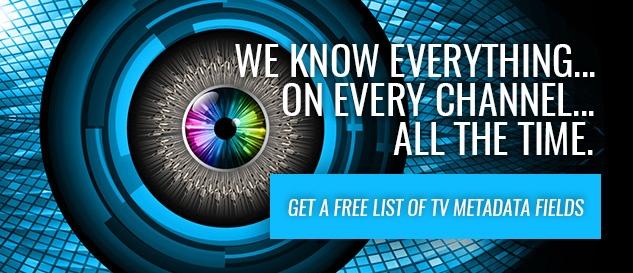We at FYI Television recently became aware of a revolutionary effort by Comcast that not only represents the best of what technology can do for those with disabilities—it’s also pioneering the industry for everyone.
Because, it’s our feeling that Comcast’s Talking TV Guide
for the disabled has permutations that will impact the way guides are used for
all consumers.
Here’s a quick summary of what Comcast is up to.
They established an “accessibility team” headed by a blind
individual who wanted to make a more effective guide for those who can’t
see—but who would like to enjoy the great content in today’s popular programs
that they can hear.
Imagine it. This gentleman—Tom Wlodkowski of Comcast—had
taken to memorizing the order of channels and identifying programs by the
voices of actors or news anchors within them. So, to him, the guide was
completely unusable. He had to create one in his own head.
Not content to settle for that, Mr. Wlodkowski (and Comcast)
embarked on a working version of a Talking Channel Guide—that they now intend
to launch fully in 2014.
The benefits of this capability to those with disabilities
who cannot use a guide are obvious. Now, they’ll be able to use the spoken word
to get the same full and robust informed content that sighted consumers now
experience with their Electronic Program Guide.
Innovations like this are important to the industry for a
variety of reasons. First, it allows those with disabilities to more easily
participate in the booming popular culture that surrounds television. Second,
it pushes the technology in ways that we can all benefit from.
The notion of a spoken Electronic Program Guide is one that
could appeal to all consumers. It would allow consumers simply speak and hear
options while doing other things—rather than stopping down to interact with a
guide.
But there are other reasons we at FYI are excited about the
Comcast’s new initiative led by Mr. Wlodkowski. And they all relate to the
future of entertainment information—and the dedication we’ve paid to our data.
We’re excited about projects like this because of the vast
and appropriate classifications on our data. Let’s face it, if you’ve got
generic show descriptions like “Shows” or “Interests” you’re likely to not even
have a viewer use THOSE words for a search. It’s just not the vernacular of how
people describe programs.
But, if you’ve got multiple appropriate and accurate
descriptors, you’ve opened up even more points of engagement that can aid
someone in finding the program they’re looking for. Robust data had robust
results.
Because of the diligence and innovation we’ve poured into
our data for over a decade, we’re positioned to help companies develop new and
innovative technologies like the Talking Guide for a variety of reasons:
Multiple categories
and genres. Because a person speaking to a talking guide—as in the case of
Comcast’s offering, or Cicso’s new product—will use their own vernacular,
multiple categories and genres are essential to relate to requests like “Make
me laugh” instead of “film comedy.”
Deep, well-written, and vivid
descriptions. Descriptions must now carry the water of informing in
granular detail for hipper, more entertainment hungry audiences—as well as
informing those without sight. No description or the bare bones won’t suffice
in the digital age.
Persistent IDs that span plaforms & databases. Our guiding IDs are capable of second party verification or being the standard for merged databases of TV data. So no matter how you incorporate the data, our singular IDs are a bannister for a clean line of program content.
Rich Media content mastery. Although the image portion of rich media doesn’t affect those without sight, the linking properties do. And, in the new digital world, the vastness of FYI’s rich media library becomes an indispensable asset for entertainment savvy developers.
App, tablet, and mobile friendly. We’re especially proud of this aspect of FYI—one that’s growing by the second. We’ve formatted our data for ease of use on app, tablet, and mobile platforms alike. And, in partnership with AT&T, we’re now experiencing over a billion hits per month with our data over their app, mobile, tablet, onscreen, and online offerings.
Persistent IDs that span plaforms & databases. Our guiding IDs are capable of second party verification or being the standard for merged databases of TV data. So no matter how you incorporate the data, our singular IDs are a bannister for a clean line of program content.
Rich Media content mastery. Although the image portion of rich media doesn’t affect those without sight, the linking properties do. And, in the new digital world, the vastness of FYI’s rich media library becomes an indispensable asset for entertainment savvy developers.
App, tablet, and mobile friendly. We’re especially proud of this aspect of FYI—one that’s growing by the second. We’ve formatted our data for ease of use on app, tablet, and mobile platforms alike. And, in partnership with AT&T, we’re now experiencing over a billion hits per month with our data over their app, mobile, tablet, onscreen, and online offerings.
In the digital future, data will not be a commodity. Because
there is a decided difference in data that has been formatted with an editorial
standard that speaks in vernacular for viewers, is abundantly searchable along
numerous terms, and is flexible enough to accommodate any platform. That’s why
we take such pride in the data we provide.
FYI is committed to partnering with companies wanting data
and service that really is qualitatively a cut above the rest—and we salute
Comcast, and Mr. Wlodkowski’s team—for innovating in such an intelligent and
purposeful manner.
Christopher S. Stark, Sr.
President & CEO
FYI Television
President & CEO
FYI Television








Post a Comment